
Forillon National Park: Canada's Coastal Gem
Located at the tip of the Gaspé Peninsula in Quebec, Forillon National Park is a stunning blend of rugged cliffs, lush forests, and serene beaches. The park's dramatic landscapes are a haven for outdoor enthusiasts, offering a variety of activities from hiking and bird-watching to snorkeling and whale watching. The park's diverse ecosystems are home to a rich array of wildlife, including seals, seabirds, and even black bears. Forillon's trails cater to all levels of hikers, with routes that meander through dense forests, ascend to panoramic lookouts, and skirt along the coastline. The park's signature hike, the Cap Gaspé trail, leads to a lighthouse perched on cliffs that offer breathtaking views of the Gulf of St. Lawrence. History buffs will appreciate the park's cultural heritage sites, which provide a glimpse into the lives of the area's early inhabitants. The Hyman & Sons General Store and the Blanchette homestead are well-preserved relics that tell the story of the region's fishing and farming past. Whether you are seeking adventure, tranquility, or a bit of both, Forillon National Park promises a memorable experience amid some of Canada's most picturesque landscapes.
Local tips in Forillon National Park
- Bring layers; the coastal weather can be unpredictable and temperatures can vary.
- Pack a picnic; there are many scenic spots perfect for a meal with a view.
- Check the tide schedule if planning to explore the beaches; tides can affect accessibility.
- Visit in late spring or early fall for fewer crowds and vibrant foliage.
- Don't forget binoculars for bird-watching and spotting marine life.
Forillon National Park: Canada's Coastal Gem
Located at the tip of the Gaspé Peninsula in Quebec, Forillon National Park is a stunning blend of rugged cliffs, lush forests, and serene beaches. The park's dramatic landscapes are a haven for outdoor enthusiasts, offering a variety of activities from hiking and bird-watching to snorkeling and whale watching. The park's diverse ecosystems are home to a rich array of wildlife, including seals, seabirds, and even black bears. Forillon's trails cater to all levels of hikers, with routes that meander through dense forests, ascend to panoramic lookouts, and skirt along the coastline. The park's signature hike, the Cap Gaspé trail, leads to a lighthouse perched on cliffs that offer breathtaking views of the Gulf of St. Lawrence. History buffs will appreciate the park's cultural heritage sites, which provide a glimpse into the lives of the area's early inhabitants. The Hyman & Sons General Store and the Blanchette homestead are well-preserved relics that tell the story of the region's fishing and farming past. Whether you are seeking adventure, tranquility, or a bit of both, Forillon National Park promises a memorable experience amid some of Canada's most picturesque landscapes.
When is the best time to go to Forillon National Park?
Iconic landmarks you can’t miss
Cap-des-Rosiers Lighthouse
Explore Canada's tallest lighthouse in Gaspé, Quebec. Discover maritime history and breathtaking views at Cap-des-Rosiers, a National Historic Site.
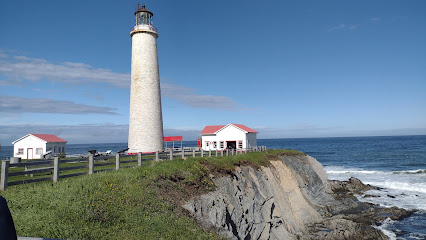
Gaspesie National Park
Explore a vast, mountainous park in the heart of the Gaspé Peninsula, home to unique wildlife and stunning scenery.
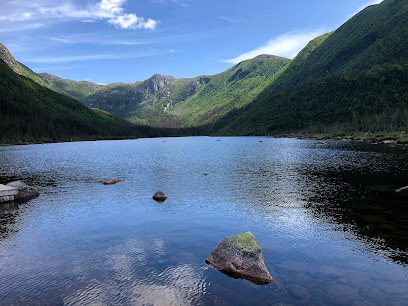
Plateforme Vitrée Suspendue
Experience breathtaking views from a glass platform suspended 200 meters above Percé, Quebec, in the heart of the Gaspésie region.
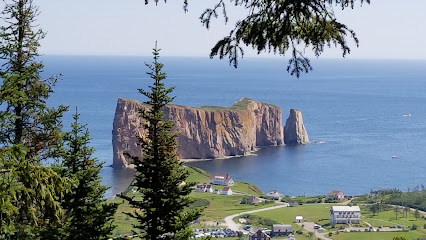
Birthplace of Canada
Discover Canada's origins at Gaspé, where Jacques Cartier landed in 1534. Explore historical buildings, cultural exhibits, and the beautiful Gaspé Bay.
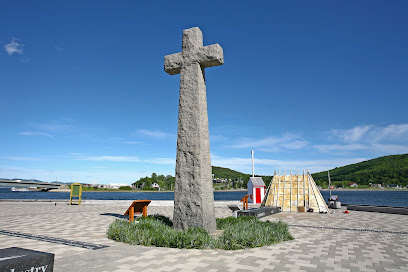
Gaspesie Museum
Explore Gaspésie's vibrant history and culture at the Musée de la Gaspésie, with exhibits for all ages and interests.
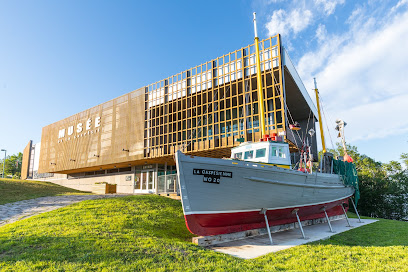
Pointe-à-la-Renommée Lighthouse
Explore a historic lighthouse, Marconi station, and scenic trails at this Gaspé Peninsula gem. Open seasonally for tours & breathtaking views.
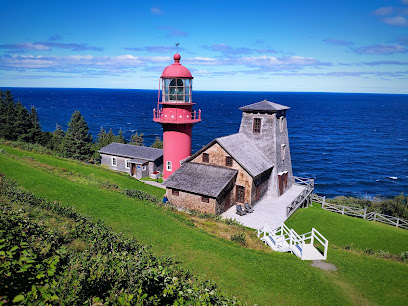
Site historique national de Paspébiac
Step back in time at Paspébiac National Historic Site, and discover the captivating story of Gaspésie's fishing industry and maritime heritage.
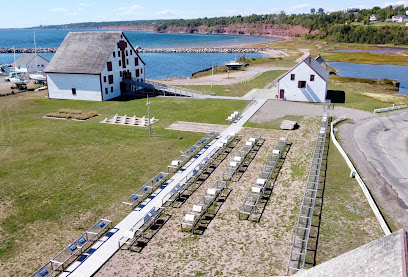
Site d'Interprétation Micmac de Gespeg
Explore Mi'gmaq heritage at Gaspé's Micmac Interpretation Site: Discover traditions, a 17th-century village, and cultural workshops.
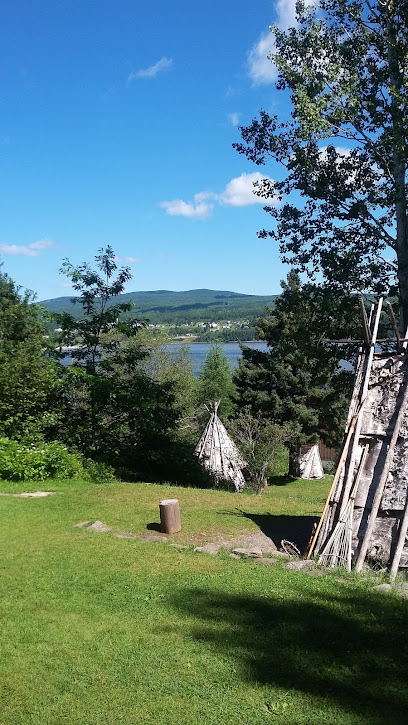
Cap Mont Joli
Get up close and personal with Percé Rock from Cap Mont Joli, a scenic viewpoint offering breathtaking views and photo opportunities.
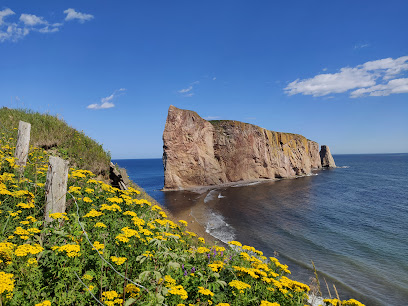
Gaspé Peninsula
Explore the Gaspé Peninsula: A stunning blend of coastal beauty, rich culture, and endless outdoor adventures await in Quebec's gem.
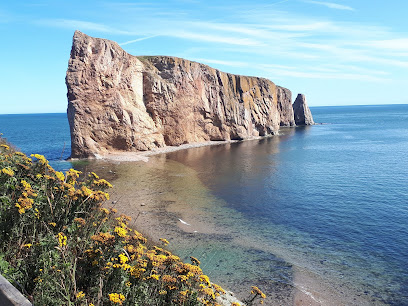
Auberge et chalets Griffon Aventure
Explore Gaspé's natural beauty from cozy chalets & campsites near Forillon National Park. Eco-friendly lodging for outdoor adventures.
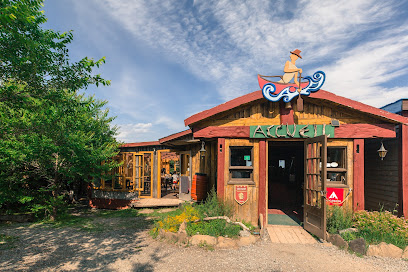
Sentier des Chutes
Discover a hidden gem in Forillon National Park: a short, scenic trail leading to a breathtaking 17-meter waterfall amidst a tranquil forest setting.
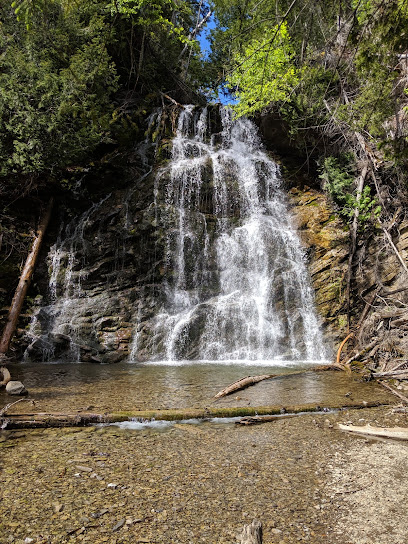
Forillon National Park Interpretation Centre
Discover Forillon National Park: Explore exhibits, plan your adventure, and connect with nature in Quebec's Gaspé Peninsula.
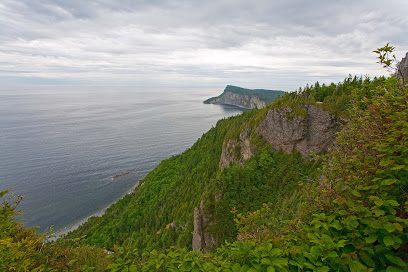
Peninsula Fort
Explore Peninsula Fort in Forillon National Park: a preserved WWII coastal defense with tunnels, guns, and stunning Atlantic views.
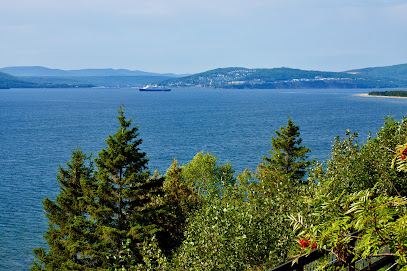
Haldimand beach
Discover Haldimand Beach in Gaspé: Golden sands, stunning views of Forillon Park, and family-friendly fun await!
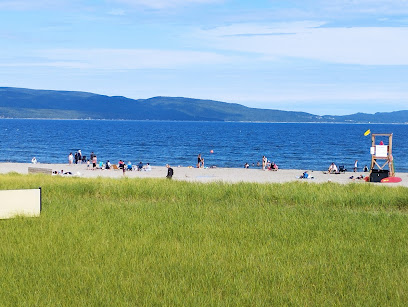
Unmissable attractions to see
Geopark - Pavilion Tektonik
Experience the stunning geological formations and rich natural heritage at Geopark - Pavilion Tektonik in Percé, Quebec.
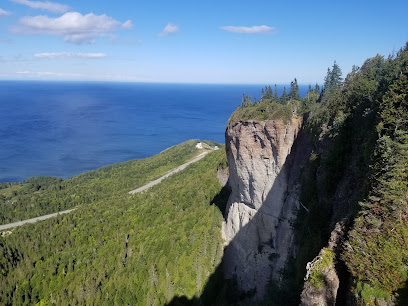
Gaspesie National Park
Explore the breathtaking landscapes and diverse wildlife of Gaspesie National Park, a premier destination for outdoor adventures in Quebec, Canada.
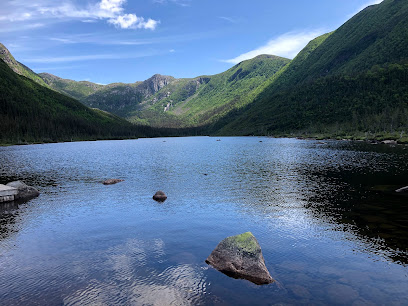
Cap-Bon-Ami Vantage Point
Experience the stunning views and serene atmosphere at Cap-Bon-Ami Vantage Point in Quebec's breathtaking coastal landscape.
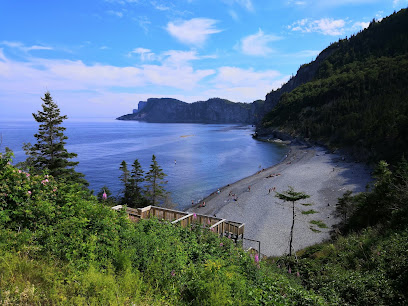
Petit-Gaspé Campground
Discover the beauty of nature at Petit-Gaspé Campground, a tranquil escape in Forillon National Park with stunning views and abundant wildlife.
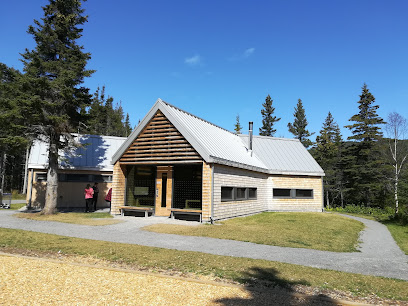
Forillon National Park Interpretation Centre
Explore the Forillon National Park Interpretation Centre for an unforgettable journey through Quebec's stunning landscapes and rich biodiversity.
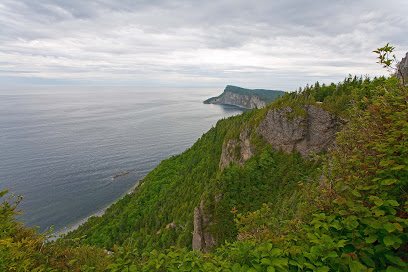
Saint-Anne Waterfall
Explore the breathtaking beauty of Saint-Anne Waterfall in Quebec, where nature's wonders and serene landscapes await your visit.
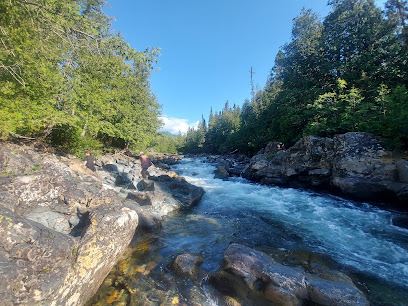
Forillon Baleines
Experience the thrill of whale watching at Forillon Baleines, where nature's wonders unfold against the stunning backdrop of Gaspé, Quebec.
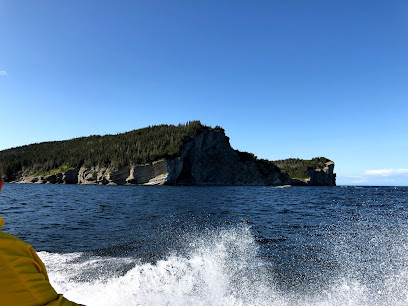
Centre récréatif Petit-Gaspé - Parc national Forillon
Explore the stunning Petit-Gaspé Recreational Center in Forillon National Park, a perfect destination for adventure and relaxation amidst breathtaking nature.
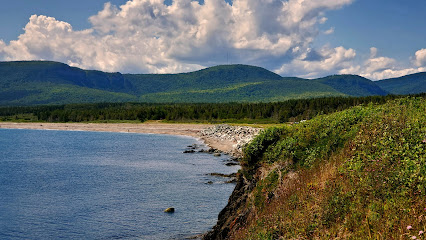
Belvédère du Mont-Saint-Alban
Experience the stunning landscapes of Gaspé from the Belvédère du Mont-Saint-Alban, an observation deck offering breathtaking views and natural beauty.
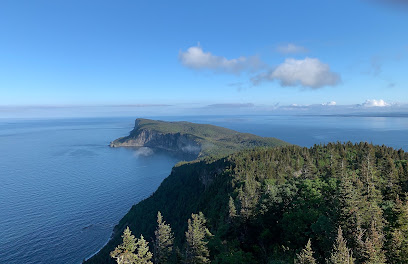
Parc national Forillon
Experience the breathtaking landscapes and rich cultural heritage at Parc National Forillon, a must-see destination for nature lovers in Quebec.
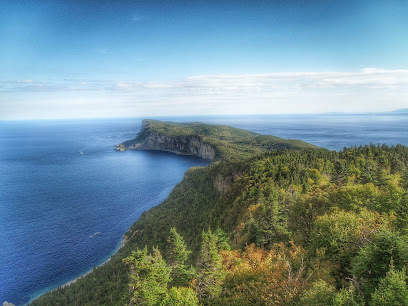
Mont Saint-Alban
Discover the stunning panoramic views at Mont Saint-Alban in La Côte-de-Gaspé, a breathtaking mountain peak perfect for nature lovers and adventure seekers.
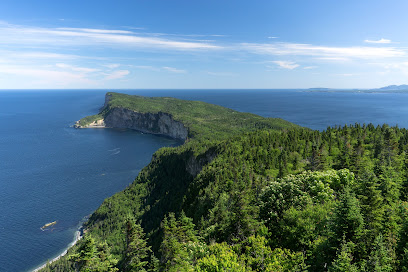
La Taïga
Discover the serene beauty of La Taïga, Gaspé's premier hiking area, where nature's majesty unfolds at every turn.
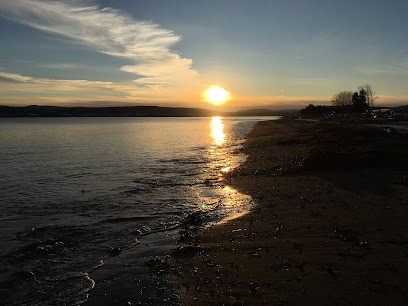
Lookout
Discover unparalleled views and natural beauty at the Lookout in Gaspé, a premier hiking area within the stunning landscapes of Forillon National Park.
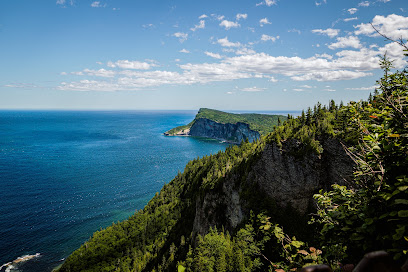
Forillon Centre d'accueil et de découverte National Park
Discover the breathtaking landscapes and diverse wildlife of Forillon National Park, a natural wonder on the Gaspé Peninsula in Quebec.
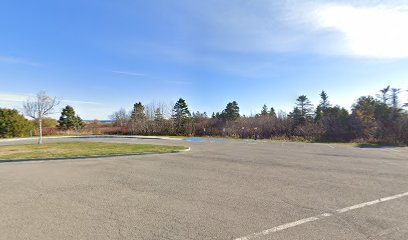
Essential places to dine
Forillon National Park
Explore Forillon National Park: A breathtaking natural wonderland offering adventure sports, wildlife encounters, scenic hikes, and rich heritage.
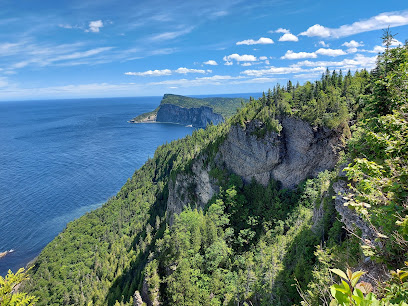
Brise Bise
Discover Brise Bise in Gaspé: where exquisite cuisine meets vibrant live music for an unforgettable dining experience.
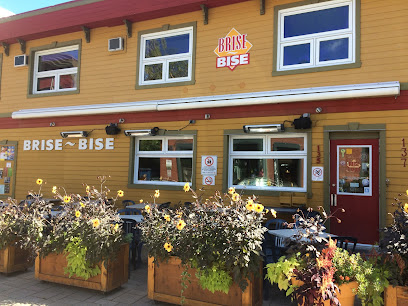
La Maison du Pêcheur
Discover fresh seafood delights at La Maison du Pêcheur in Percé – where ocean views meet culinary excellence.
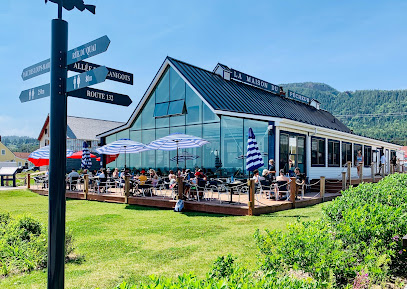
Cafe Des Artistes
Discover Café Des Artistes in Gaspé - where exceptional coffee meets local artistry in a cozy setting perfect for every traveler.
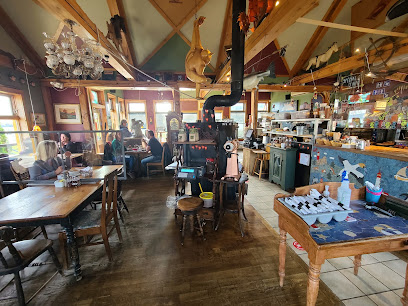
Au Frontibus - Microbrasserie
Discover Gaspé's gem: Au Frontibus Microbrasserie offers exceptional craft beers and delicious local cuisine in a cozy atmosphere.
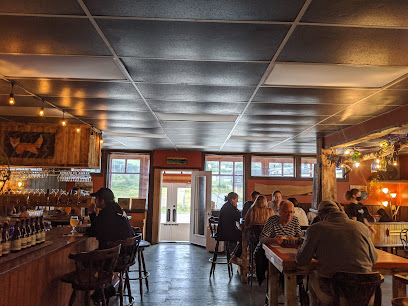
Baker Hotel
Discover unparalleled comfort at Baker Hotel in Gaspé, Quebec—a perfect blend of local charm and modern amenities awaits you.
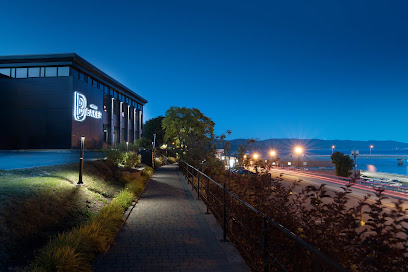
TÉTÛ Taverne Gaspésienne
Discover TÉTÛ Taverne Gaspésienne in Gaspé – where local flavors meet family-friendly dining and sports excitement.
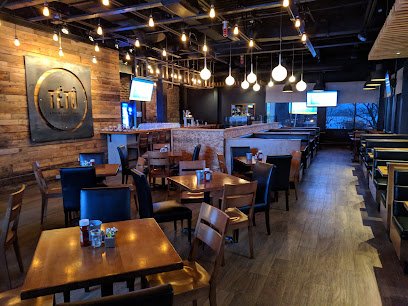
Resto-Pub La Révolte
Experience the culinary delights of Gaspé at Resto-Pub La Révolte—where local flavors meet warm hospitality.
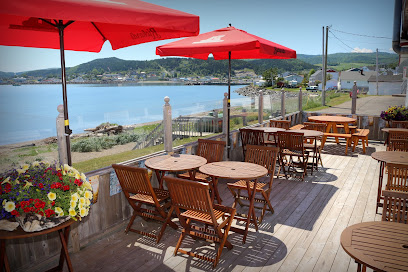
Mastro Pizzeria
Discover Mastro Pizzeria in Gaspé: where delicious pizza meets fresh local seafood for an unforgettable dining experience.
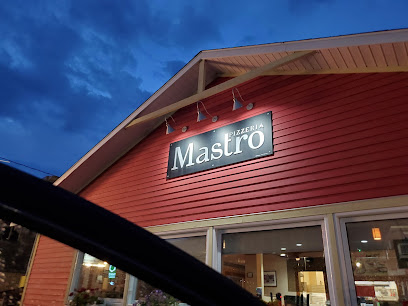
Café de L'Anse - restaurant gaspésien
Experience authentic Gaspésien cuisine at Café de L'Anse – where every meal tells a story of Quebec's rich maritime heritage.
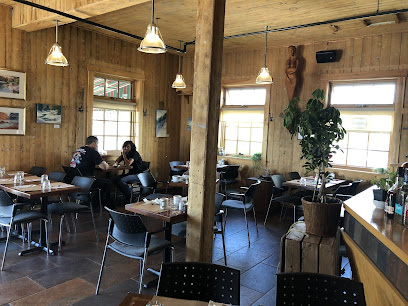
Auberge Le Caribou
Discover comfort and adventure at Auberge Le Caribou in Gaspé—your ideal base for exploring stunning landscapes and local cuisine.

Auberge sous les arbres
Discover tranquility at Auberge sous les arbres in Gaspé – your gateway to nature's wonders and cozy comfort.
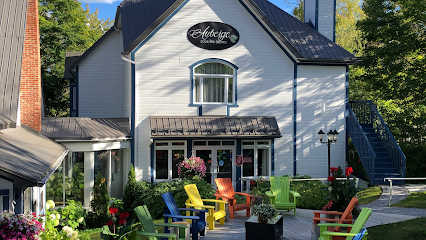
Centre Culturel Le Griffon
Discover the vibrant cultural scene at Centre Culturel Le Griffon in Gaspé - where local cuisine meets artistic expression.
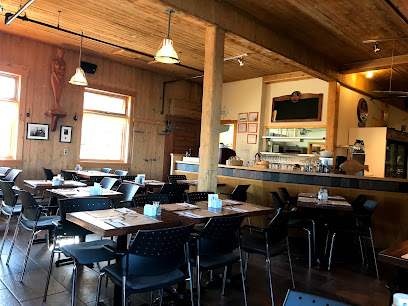
Hôtel Motel Le Pharillon Inc
Experience comfort and natural beauty at Hôtel Motel Le Pharillon Inc, your gateway to Gaspé's stunning landscapes and outdoor adventures.

Restaurant Paqbo
Experience exquisite local cuisine with stunning views at Restaurant Paqbo in beautiful Percé, Quebec.
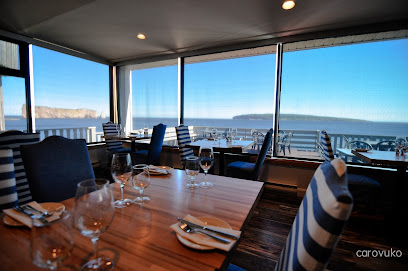
Markets, malls and hidden boutiques
Forillon National Park
Explore Forillon National Park: A breathtaking blend of rugged coastlines, diverse wildlife, and thrilling outdoor adventures in Quebec.
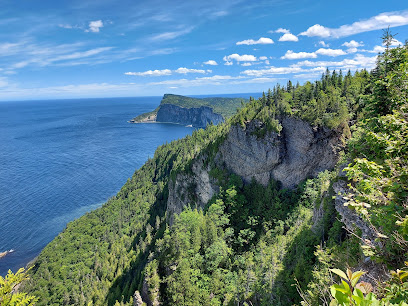
Cap-des-Rosiers Lighthouse
Experience the breathtaking beauty and rich maritime history of Cap-des-Rosiers Lighthouse, a premier tourist attraction on Quebec's stunning coastline.
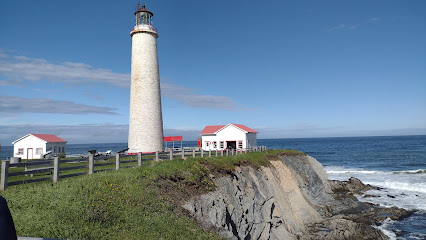
Gaspesie National Park
Discover the breathtaking beauty of Gaspesie National Park, a natural haven in Quebec with stunning landscapes and outdoor adventures.
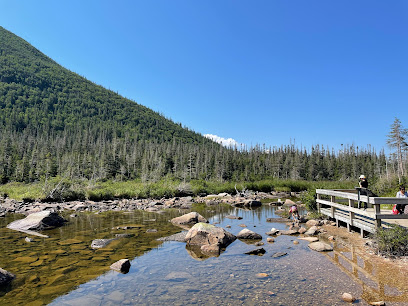
Magasin Général Historique Authentique 1928
Discover the rich history and local charm at Magasin Général Historique Authentique 1928, a unique tourist attraction in Cap-d'Espoir, Quebec.
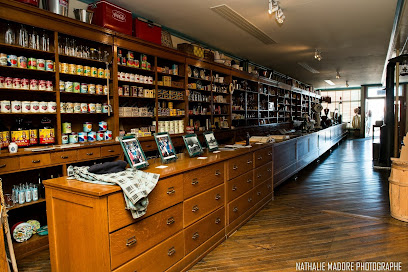
Gaspesie Museum
Discover the rich history of the Gaspé Peninsula at the Gaspesie Museum, showcasing local heritage and captivating exhibits for all ages.
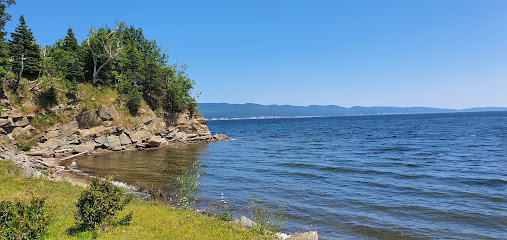
Camping Gaspé
Discover the breathtaking landscapes and outdoor adventures at Camping Gaspé, a top campground destination in Quebec's stunning Gaspé Peninsula.
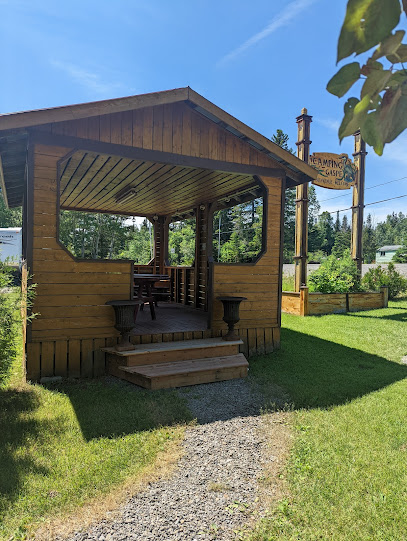
Maxi Gaspé Reine
Discover fresh produce, delightful baked goods, and local delicacies at Maxi Gaspé Reine in Gaspé, Quebec.

Site d'Interprétation Micmac de Gespeg
Explore the vibrant heritage of the Micmac people at the Site d'Interprétation Micmac de Gespeg, a must-visit museum in Gaspé, Quebec.
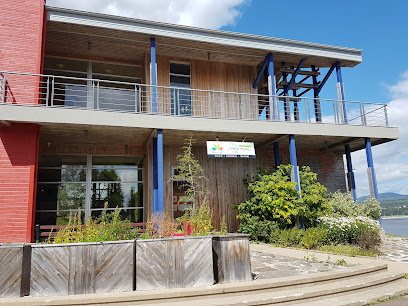
Croisières Baie de Gaspé
Discover the breathtaking marine life of Gaspé Bay with unforgettable whale watching tours at Croisières Baie de Gaspé.
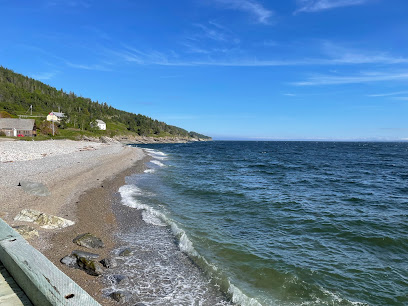
Centre Culturel Le Griffon
Experience the vibrant culture and culinary delights of Gaspé at Centre Culturel Le Griffon, where art and flavor intertwine in beautiful Quebec.
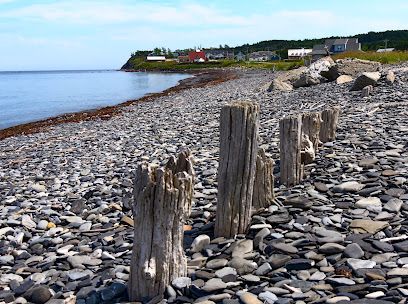
Hôtel Motel Le Pharillon Inc
Discover the charm of Gaspé with a stay at Hôtel Motel Le Pharillon Inc, your gateway to nature and relaxation near Forillon National Park.

Wazo
Explore Wazo in Percé, a creative haven for art lovers and jewelry enthusiasts showcasing local craftsmanship and unique designs.
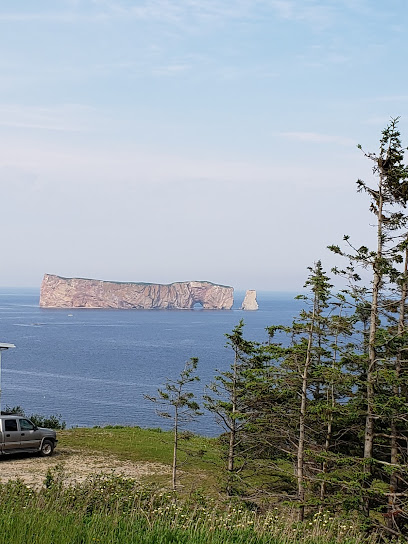
Forillon National Park Interpretation Centre
Experience the natural beauty and rich history of Forillon National Park at the Interpretation Centre—your gateway to adventure in Quebec’s Gaspé Peninsula.
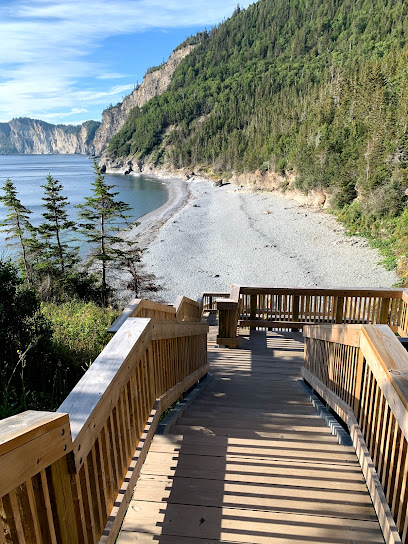
Peninsula Fort
Discover Canada's military history at Peninsula Fort in Gaspé, where engaging reenactments and scenic views await.
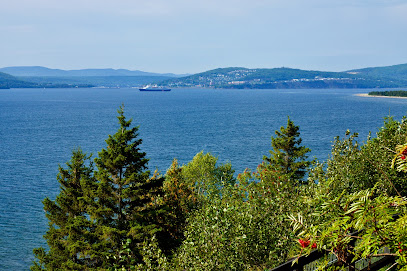
Savonnerie Poussière D'Étoile
Explore Savonnerie Poussière D'Étoile in Percé, Quebec – where natural beauty meets artisanal craftsmanship in delightful handcrafted soaps.
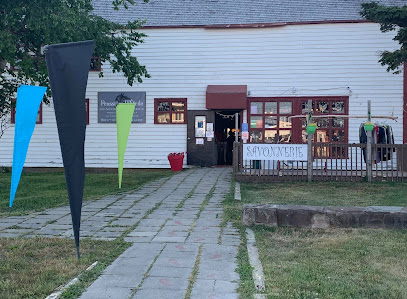
Essential bars & hidden hideouts
Forillon National Park
Discover the breathtaking landscapes and diverse wildlife of Forillon National Park, a premier destination for outdoor adventures and nature exploration.
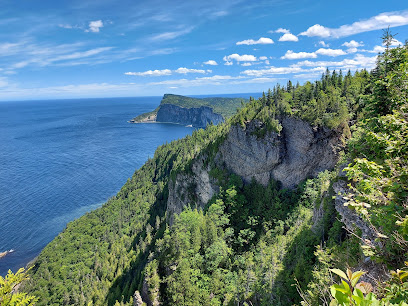
Brise Bise
Brise Bise: A Culinary Delight in Gaspé with Live Music and Local Flavors.
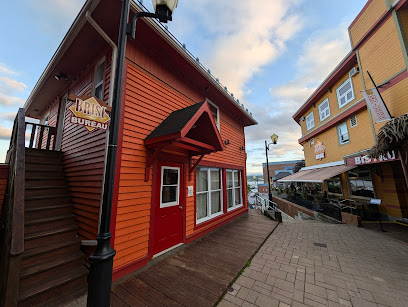
Pub Pit Caribou Percé
Discover the flavors of Quebec at Pub Pit Caribou in Percé, a brewpub offering craft beer and local dishes with stunning coastal views.
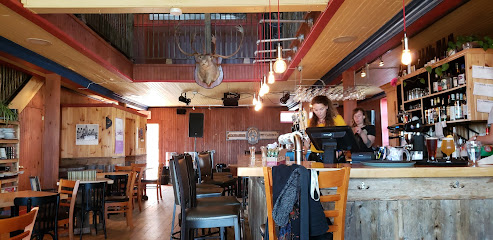
Microbrasserie Pit Caribou
Experience the essence of Quebec craft brewing at Microbrasserie Pit Caribou, where artisanal beers and local flavors unite in a cozy atmosphere.
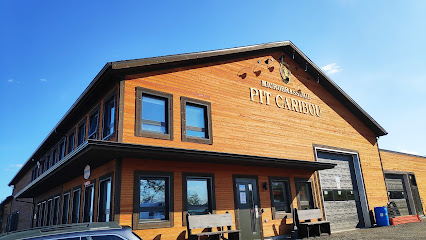
Au Frontibus - Microbrasserie
Discover the enchanting world of craft beer at Au Frontibus Microbrasserie, Gaspé's premier brewpub with unique flavors and a vibrant atmosphere.
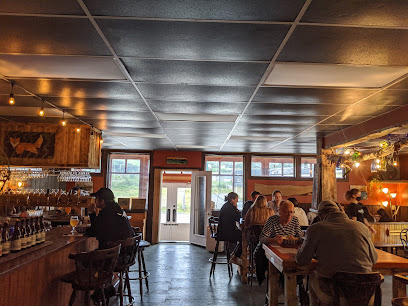
Restaurant et bar St-Hubert
Discover the taste of Gaspé at St-Hubert Restaurant & Bar, where delicious rotisserie chicken meets a welcoming atmosphere.
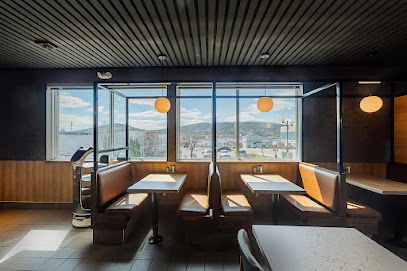
TÉTÛ Taverne Gaspésienne
Experience the best of Gaspé cuisine at TÉTÛ Taverne Gaspésienne, a family-friendly restaurant and sports bar with stunning bay views.
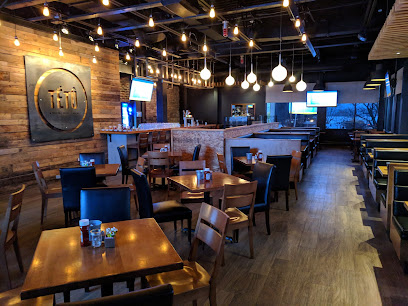
Resto-Pub La Révolte
Discover the authentic flavors of Quebec at Resto-Pub La Révolte in Gaspé, where local cuisine meets a vibrant pub atmosphere.
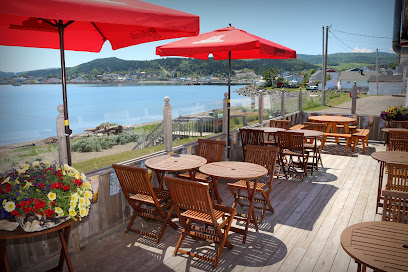
Rodeway Inn
Experience the warmth of Gaspé at Rodeway Inn, your cozy retreat in Quebec's stunning natural landscape.
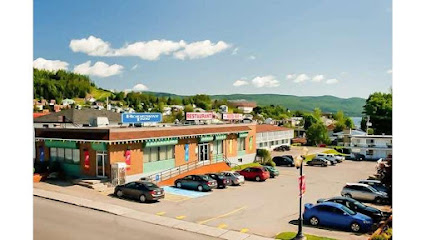
Café de L'Anse - restaurant gaspésien
Discover the flavors of Gaspésien cuisine at Café de L'Anse, a cozy restaurant in the heart of Gaspé, Quebec, offering a delightful dining experience.
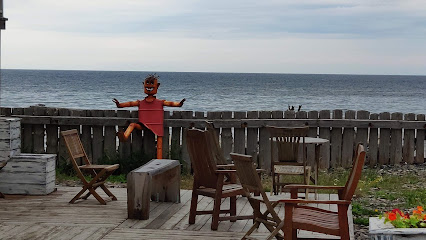
Auberge et chalets Griffon Aventure
Discover the natural beauty of Gaspé at Auberge et chalets Griffon Aventure, your perfect retreat for adventure and relaxation.
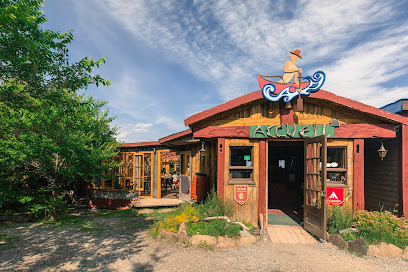
Bar Laitier Casse Croute La Molliere
Discover the delicious flavors of Gaspé at Bar Laitier Casse Croute La Molliere, a must-visit restaurant for ice cream lovers and food enthusiasts alike.
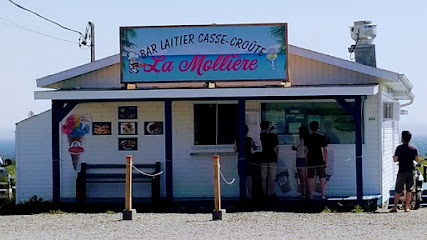
Bar Le Castor
Experience the vibrant atmosphere and local flavors at Bar Le Castor, a must-visit bar and restaurant in the heart of Gaspé, Quebec.
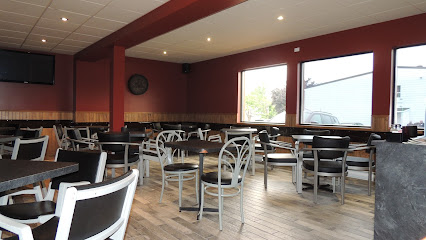
La Cantine du quai
Experience the vibrant culinary scene at La Cantine du Quai in Gaspé, where local flavors meet warm hospitality in a charming setting.

Café de la Traverse
Discover the charm of Café de la Traverse, a delightful café in Gaspé offering local flavors and a cozy ambiance near Forillon National Park.
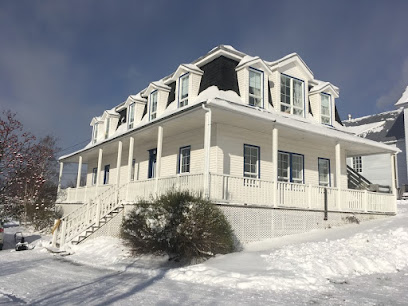
Local Phrases about Forillon National Park
-
- HelloBonjour
[bon-zhoor] - GoodbyeAu revoir
[oh ruh-vwahr] - YesOui
[wee] - NoNon
[nohn] - Please/You're welcomeS'il vous plaît/De rien
[seel voo pleh/duh ryehn] - Thank youMerci
[mehr-see] - Excuse me/SorryExcusez-moi/Désolé
[ehk-skew-zay mwah/day-zoh-lay] - How are you?Comment ça va?
[koh-mohn sah vah] - Fine. And you?Bien. Et vous?
[byen. ay voo] - Do you speak English?Parlez-vous anglais?
[par-lay voo ahn-glay] - I don't understandJe ne comprends pas
[zhuh nuh kohm-prahn pah]
- HelloBonjour
-
- I'd like to see the menu, pleaseJe voudrais voir le menu, s'il vous plaît
[zhuh voo-dray vwahr luh muh-noo, seel voo pleh] - I don't eat meatJe ne mange pas de viande
[zhuh nuh mahnj pah duh vyand] - Cheers!Santé!
[sahn-tay] - I would like to pay, pleaseJe voudrais payer, s'il vous plaît
[zhuh voo-dray peh-yay, seel voo pleh]
- I'd like to see the menu, pleaseJe voudrais voir le menu, s'il vous plaît
-
- Help!À l'aide!
[ah layd] - Go away!Allez-vous-en!
[ah-lay voo zahn] - Call the Police!Appelez la police!
[ah-peh-lay lah poh-leece] - Call a doctor!Appelez un médecin!
[ah-peh-lay uh mayd-sahn] - I'm lostJe suis perdu
[zhuh swee pair-doo] - I'm illJe suis malade
[zhuh swee mah-lahd]
- Help!À l'aide!
-
- I'd like to buy...Je voudrais acheter...
[zhuh voo-dray zah-shtay...] - I'm just lookingJe regarde juste
[zhuh ruh-gahrd zhoost] - How much is it?Combien ça coûte?
[kohm-byen sah koot] - That's too expensiveC'est trop cher
[say troh shay] - Can you lower the price?Pouvez-vous baisser le prix?
[poo-vez voo bay-say luh pree]
- I'd like to buy...Je voudrais acheter...
-
- What time is it?Quelle heure est-il?
[kell uhr eh-teel] - It's one o'clockIl est une heure
[eel eh tuhn uhr] - Half past (10)Dix heures et demie
[dees uhr ay duh-mee] - MorningMatin
[mah-tahn] - AfternoonAprès-midi
[ah-pray mee-dee] - EveningSoir
[swahr] - YesterdayHier
[ee-ehr] - TodayAujourd'hui
[oh-zhoor-dwee] - TomorrowDemain
[duh-mahn] - 1Un
[uhn] - 2Deux
[duh] - 3Trois
[twah] - 4Quatre
[khatr] - 5Cinq
[sank] - 6Six
[sees] - 7Sept
[sept] - 8Huit
[wheat] - 9Neuf
[nuff] - 10Dix
[dees]
- What time is it?Quelle heure est-il?
-
- Where's a/the...?Où est un/le...?
[oo eh uh/luh] - What's the address?Quelle est l'adresse?
[kell eh lah-dress] - Can you show me (on the map)?Pouvez-vous me montrer (sur la carte)?
[poo-vez voo muh mohn-tray (soor lah kart)] - When's the next (bus)?Quand est le prochain (bus)?
[kahnd eh luh proh-shahn (bus)] - A ticket (to ....)Un billet (pour ....)
[uhn bee-yay (poor)]
- Where's a/the...?Où est un/le...?
History of Forillon National Park
-
For thousands of years, the Mi'kmaq people inhabited the Gaspé Peninsula, including what is now Forillon National Park. They were skilled fishers, hunters, and gatherers who lived in harmony with the natural environment. Artifacts such as tools, pottery, and remnants of ancient campsites found within the park provide a glimpse into their rich cultural heritage.
-
In 1534, French explorer Jacques Cartier arrived on the Gaspé Peninsula, marking the beginning of European interest in the region. Cartier's arrival heralded a period of exploration and eventual settlement by French colonists. The interactions between Europeans and the Mi'kmaq had profound impacts on the culture and history of the region.
-
The abundant cod fishery in the Gulf of St. Lawrence attracted European fishermen to the Gaspé Peninsula. By the 18th century, fishing communities were well-established along the coast. Cod fishing became the economic backbone of the region, leading to the development of settlements and infrastructure that would later be incorporated into Forillon National Park.
-
In 1760, during the Seven Years' War, the Battle of the Restigouche took place near the Gaspé Peninsula. This naval battle was a pivotal conflict between the French and British forces. Although the French were defeated, the battle is remembered as a significant event in the history of the region and is commemorated within the park.
-
By the late 18th and early 19th centuries, European settlers, primarily of French and Irish descent, established agricultural communities in the area. They cleared forests and built farms, contributing to the development of the local economy. The remnants of these early settlements, including old farmhouses and barns, can still be seen in Forillon National Park.
-
During World War II, Forillon's strategic location made it a site of military significance. The Canadian government established coastal defense installations to protect against potential enemy invasions. Relics of these wartime fortifications, including bunkers and observation posts, are preserved within the park and serve as historical landmarks.
-
Forillon National Park was officially established in 1970 as one of Canada's first national parks in the province of Quebec. The creation of the park aimed to preserve the region's natural beauty and cultural heritage while offering recreational opportunities for visitors. This development led to the relocation of some local residents and the preservation of historic sites within the park's boundaries.
-
Forillon National Park is home to several significant cultural heritage sites, including the Grande-Grave Heritage Site. This area features restored buildings and exhibits that showcase the lives of the fishing and farming families who once lived there. The park also includes the Hyman & Sons General Store, which offers insights into the commercial history of the region.
Forillon National Park Essentials
-
Forillon National Park is located at the eastern tip of the Gaspé Peninsula in Quebec, Canada. The nearest airport is Michel-Pouliot Gaspé Airport (YGP), about 40 km from the park. From the airport, you can rent a car or take a taxi to reach the park. Another option is to drive from major cities such as Montreal (approximately 950 km) or Quebec City (approximately 700 km). There are also bus services that connect to the town of Gaspé from various cities, and from there you can take a taxi or a local bus to the park.
-
The most convenient way to explore Forillon National Park is by car. Car rentals are available at the Michel-Pouliot Gaspé Airport and in the town of Gaspé. The park has well-maintained roads and ample parking areas near major attractions. Biking is also a popular way to get around, with several trails available for cyclists. Additionally, there are guided tours and shuttle services available during peak seasons that can take you to key spots within the park.
-
The official currency in Canada is the Canadian Dollar (CAD). Credit and debit cards are widely accepted in the region, including at the park's visitor centers, restaurants, and shops. However, it's advisable to carry some cash, especially for small purchases or in more remote areas where card payment may not be possible. ATMs are available in the town of Gaspé.
-
Forillon National Park is generally a safe destination for tourists. However, it's important to take standard precautions. Wildlife encounters can occur, so always maintain a safe distance from animals and follow park guidelines. Keep your belongings secure and be cautious at night, although the region has a low crime rate. There are no specific neighborhoods in the vicinity with high crime rates targeting tourists.
-
In case of emergency, dial 911 for immediate assistance. The park has several emergency call stations and the staff at visitor centers can provide help. There is a hospital in the town of Gaspé, approximately 40 km from the park, for medical emergencies. It's recommended to have travel insurance covering medical emergencies and to carry a basic first aid kit.
-
Fashion: Do wear comfortable and weather-appropriate clothing, including layers and waterproof gear. Avoid wearing strong fragrances as they can attract insects. Religion: Respect any local cultural practices, though Forillon is not known for significant religious customs. Public Transport: Do respect other passengers and keep noise to a minimum. Public transport might be limited, so plan accordingly. Greetings: A friendly handshake or a simple 'Bonjour' is a polite way to greet locals. Eating & Drinking: Do try local seafood and traditional Quebecois dishes. Don't feed wildlife or leave food unattended as it can attract animals.
-
To experience Forillon National Park 'like a local,' take time to explore the less crowded trails and hidden coves. Visit the local markets in Gaspé for fresh produce and regional specialties. Talk to park rangers for insider tips on the best spots for wildlife viewing and photography. Participate in local events or festivals if your visit coincides with them, and don’t miss out on a whale-watching tour, which is a highlight of the region.
Trending Landmarks in Forillon National Park
-
Cap-des-Rosiers Lighthouse
-
Gaspesie National Park
-
Plateforme Vitrée Suspendue
-
Birthplace of Canada
-
Gaspesie Museum
-
Pointe-à-la-Renommée Lighthouse
-
Site historique national de Paspébiac
-
Site d'Interprétation Micmac de Gespeg
-
Cap Mont Joli
-
Gaspé Peninsula
-
Auberge et chalets Griffon Aventure
-
Sentier des Chutes
-
Forillon National Park Interpretation Centre
-
Peninsula Fort
-
Haldimand beach
Nearby Cities to Forillon National Park
-
Things To Do in Bangor
-
Things To Do in Quebec City
-
Things To Do in Bar Harbor
-
Things To Do in Acadia National Park
-
Things To Do in Waterville
-
Things To Do in Camden
-
Things To Do in Miquelon
-
Things To Do in Halifax
-
Things To Do in Langlade
-
Things To Do in Rockland
-
Things To Do in Saint-Pierre Ferry Terminal
-
Things To Do in Saint-Pierre Airport
-
Things To Do in Augusta
-
Things To Do in Lewiston
-
Things To Do in Brunswick













